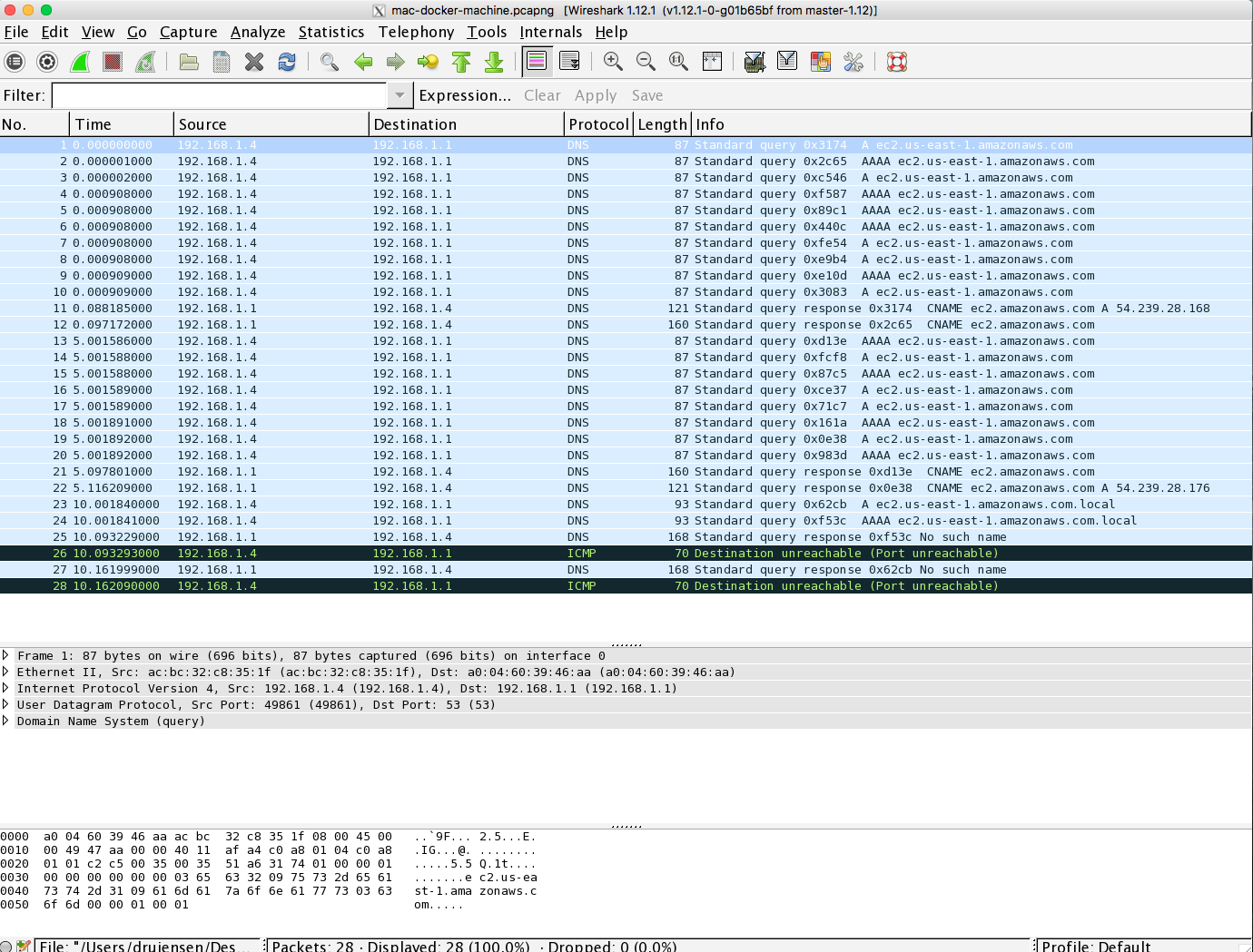

N: Updating from such a repository can 't be done securely, and is therefore disabled by default.

0.0.0.0 ports were not redirected with docker installed using brew and worked smoothly with Docker.
#Brew docker for mac#
Done W: GPG error: focal InRelease: The following signatures couldn 't be verified because the public key is not available: NO_PUBKEY 7EA0A9C3F273FCD8Į: The repository ' focal InRelease ' is not signed. install Docker Desktop for Mac or use brew install homebrew/cask/docker run it and pass admin credentials to start everything It resolved issues with 'docker deamon not running' as well as some other issues that the other answer didn't (e.g. The following signatures couldn 't be verified because the public key is not available: NO_PUBKEY 7EA0A9C3F273FCD8 Hit:2 focal InRelease Hit:3 focal InRelease Get:4 focal-security InRelease Hit:5 focal-updates InRelease Hit:6 focal-backports InRelease Reading package lists.
#Brew docker update#
$ sudo apt update & sudo apt install -y docker-ce docker-ce-cli containerd.io For a global config, create %UserProfile%/.wslconfig, for a distro-specific config, it's /etc/wsl.conf. Then create a WSL config file and limit the memory and CPU usage if you want. # echo -e "\n# Start the Docker service\n " echo "wsl.exe -u root service docker status > /dev/null || wsl.exe -u root service docker start > /dev/null " > ~/.bashrc # echo -e ' ' | sudo tee -a daemon.json > /dev/null
#Brew docker windows#
# Not needed if you installed it using PowerShell, I think The Homebrew package manager may be used on Linux and Windows Subsystem for Linux (WSL) 2. Otherwise, follow the directions for the 'User.

Use the following command to start it manually: sudo systemctl start docker.
#Brew docker how to#
Under 'Choose how to configure the installation of Docker's CLI tools', I selected 'System' so that Docker CLI tools are installed under /usr/local/bin. On some operating systems, like Ubuntu and Debian, the Docker daemon service starts automatically.

Sudo apt update & sudo apt install -y docker-ce docker-ce-cli containerd.io Check how Docker's CLI tools are installed and make sure they are in the right PATH. # echoing to priveleged file: echo "deb \ $(lsb_release -cs ) stable " | sudo tee /etc/apt//docker.list > /dev/null Run Docker by using the command line or opening Docker.app. Sudo apt update & sudo apt install -y ca-certificates curl gnupg lsb-release Homebrew, you can install Docker as a cask with: brew install -cask docker. # Remove previously installed versions, if needed # sudo apt remove docker docker-engine docker.io containerd runc Sudo apt update & sudo apt install -y xdg-utils brew cask install guitool Docker on Mac is a GUI tool, so you need to use Homebrew Cask for the Installation Step by Step This is a detailed roadmap to. Sudo apt update & sudo apt install -y build-essential gcc bin/bash -c " $(curl -fsSL ) " echo 'eval "$(/home/linuxbrew/.linuxbrew/bin/brew shellenv)" ' > /home/myuser/.profileĮval " $(/home/linuxbrew/.linuxbrew/bin/brew shellenv ) "
If you must use Bionic (18.04), the correct way to install homebrew will be to follow the steps in the official Dockerfile. One workaround, mentioned in 'Bind container ports to the host' would be to use -P: (or -publish-alltruefalse) to docker run which is a blanket operation that identifies every port with an EXPOSE line in the image’s Dockerfile or -exposeTo correctly install Docker Desktop, first remove docker and then re-install the cask: brew remove dockerįinally, install docker again to get the command line tools back.# In WSL2 bash (open the Ubuntu app that was installed): Is there a reason you cant use the official image (docker pull linuxbrew/linuxbrew)It is based on Ubuntu 16.04 / Xenial. Verify that Docker Compose is installed correctly by checking the version. sudo yum update sudo yum install docker-compose-plugin. => Purging files for version 4.3.2,72729 of Cask dockerĮrror: It seems there is already a Binary at '/usr/local/share/zsh/site-functions/_docker' sudo apt-get update sudo apt-get install docker-compose-plugin. => Removing App '/Applications/Docker.app' => Backing App 'Docker.app' up to '/usr/local/Caskroom/docker/4.3.2,72729/Docker.app' => Unlinking Binary '/usr/local/etc/bash_completion.d/docker-compose' => Linking Binary 'docker-compose.bash-completion' to '/usr/local/etc/bash_completion.d/docker-compose' => Moving App 'Docker.app' to '/Applications/Docker.app' However, if you’ve already installed docker with Homebrew, you might bump in to an error: brew install -cask docker If you want to install Docker Desktop with Homebrew, you can use the cask.


 0 kommentar(er)
0 kommentar(er)
